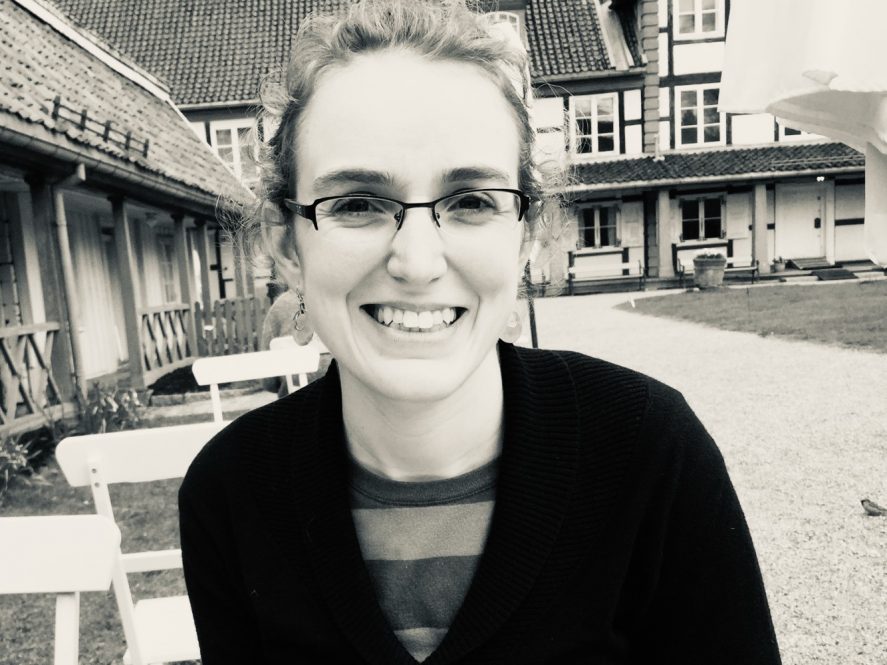When you think of a nurse, do you envision a person wearing scrubs and treating patients in a hospital? Perhaps you think of someone taking patients’ vitals and administering medications, or someone moving between beds to care for the sick. While nursing often involves this discipline of bedside care, you likely did not picture someone working in a prison, despite the vital role nurses have in this field.
UConn School of Nursing Ph.D. student Anne Reeder is gaining expertise in this nontraditional area, because she says she wants to help reduce inequities in the correctional health care system.
“I worked in a mid-sized jail in Colorado from 2011 to 2015, which was one of the most challenging, yet rewarding, experiences,” Reeder says. “I started asking questions about some of the inequities I saw and realized I wanted to study this topic formally and structurally.”
Reeder has a background in both nursing and public health. She earned her Bachelor of Science in Nursing in 2010 from Michigan State University, and then went on to earn her Master of Public Health in 2014 from the Colorado School of Public Health. Now, she is advancing her studies in both nursing and American Studies through UConn’s School of Nursing and The Graduate School, respectively.
Reeder’s research focuses on correctional health care, specifically mental health care, health services administration, and quality of care. She says there are often barriers when people who are incarcerated attempt to access health care inside correctional facilities. There is a lack of both physical and human resources, which makes high quality, community-equivalent health care difficult, she says.
“I worked in a mid-sized jail in Colorado from 2011 to 2015 … I started asking questions about some of the inequities I saw and realized I wanted to study this topic formally and structurally.” — Anne Reeder, Ph.D. student
“One of the myriad reasons for the lack of access and quality disparity is the Medicaid Inmate Exclusion Policy, which significantly limits the use of Medicaid dollars for people who are incarcerated,” Reeder says. “Another reason is the stigma and social bias associated with incarceration.”
Reeder’s research aims to expose and decrease inequities in the correctional health care system by centering the material and social needs of people who are incarcerated.
“I am currently working on an integrative review that examines reentry programs for people with mental illness who are leaving U.S. jails,” Reeder says.
She has made two preliminary findings from the integrative review: there is a lack of conclusive evidence regarding the efficacy of existing jail reentry programs for people with mental illness and there is a disconnect between existing reentry models and the implementation research needed to demonstrate model efficacy.
As she continues to study the U.S. correctional health care system, Reeder hopes to implement research-based programs aimed at improving the quality of care for incarcerated individuals within its institutions.
“One of my primary goals is to elevate the voices of people who are incarcerated,” Reeder says, “so that they may more meaningfully direct their health care in correctional facilities.”
To learn more about the UConn School of Nursing, visit nursing.uconn.edu and follow the School on Facebook, Instagram, Twitter, or LinkedIn.
The UConn School of Nursing Ph.D. Program is currently accepting applications. Learn more and apply at phd.nursing.uconn.edu.



